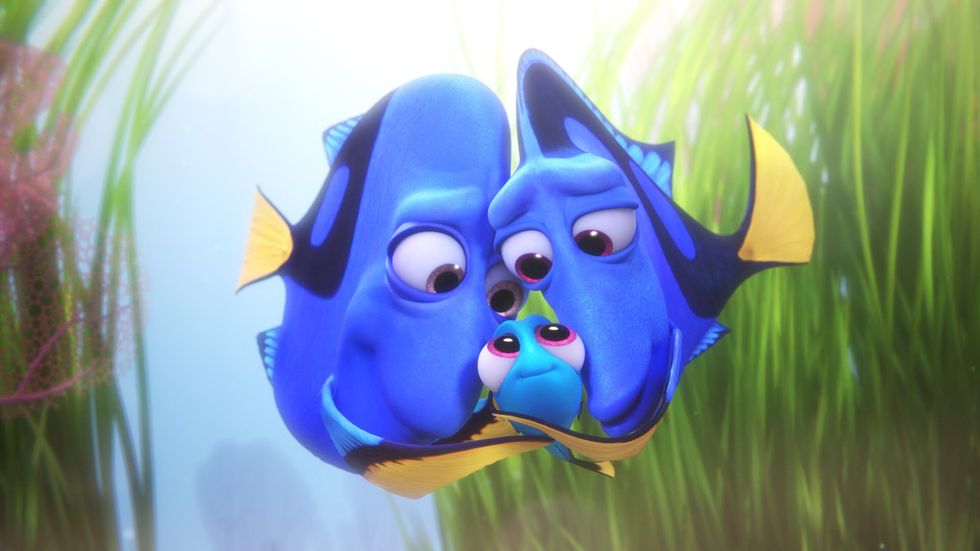We’ve all seen Finding Nemo, and we all know about the adorable Blue Tang fish that we call Dory. One of the most defining qualities of Dory is not her hilarious nature, but her short-term memory loss. When Finding Nemo first introduced the world to Dory, winningly voiced by Ellen Degeneres, back in 2003, many psychologists and researchers praised the movie for being one of the few to accurately portray amnesia. Although Dory knows who she is, she has difficulty forming or encoding new memories.
She can temporarily remember things if she repeats them, but when she gets agitated or distracted, she loses them. She's particularly bad with directions and with names. And there's no magical "cure." It's just something she has to live with. We discover in Finding Dory that Dory was actually born with this memory disability. And at the backbone of Dory's disability is two parents who intend to love her and take care of her, despite her memory loss — and it shows in the new film's opening scenes when Dory's parents do their best to help their daughter remember things.
It has actually been decided that Dory suffers from a specific type of short-term memory loss. Anterograde amnesia is the inability of the hippocampus to encode new memories. This explains why Dory is able to remember things like her name, her condition, and the love she has for her parents and Marlin and Nemo.
Short-term memory loss is typically caused by alcohol and drug abuse, concussions and other trauma to the head can impact short-term memory. Medical conditions such as seizures, epilepsy, heart bypass surgery and depression can also impact short-term memory. Short-term memory is the information that a person is currently thinking about or is aware of. It is also called primary or active memory. Recent events and sensory data such as sounds are stored in short-term memory.
Short-term memory often encompasses events over a period anywhere from 30 seconds to several days. Because short-term memories need to be recalled for a lesser amount of time than long-term memories, the ability of the brain to store short-term items is more limited. According to "Memory Loss & the Brain," a newsletter from the Memory Disorders Project at Rutgers University, the brain can store anywhere from five to nine items. Long-term memory has much greater capacity and contains things such as fact, personal memories and the name of your third-grade teacher.
The different stages of memory are handled by different parts of the brain. Short-term memory primarily takes place in the frontal lobe of the cerebral context. Then the information makes a stopover in the hippocampus and is then transferred to the areas of the cerebral cortex involved in language and perception for permanent storage. In Finding Nemo, repetition helps Dory to keep her attention on the task—P. Sherman, 42 Wallaby Way, Sydney!—but as soon as her concentration is broken, the rehearsed information is lost.
Anterograde amnesia is to blame. What’s really interesting is that fish actually don’t have short term memory problems (except maybe Goldfish). As a matter of fact, fish can remember vividly the events of the past few months! I would say that Dory in the Finding series is definitely a good example, and an accurate one, of short-term memory loss.


















